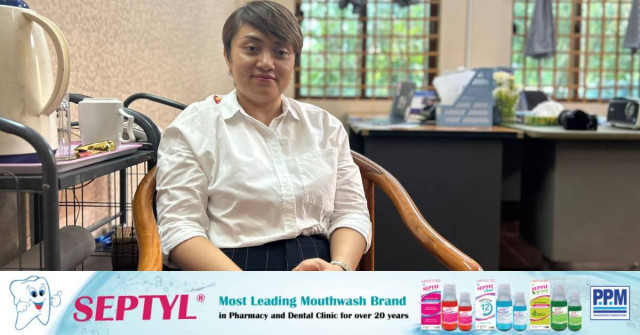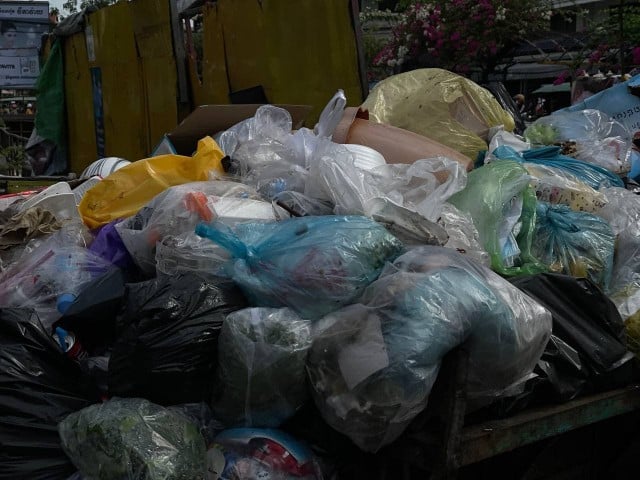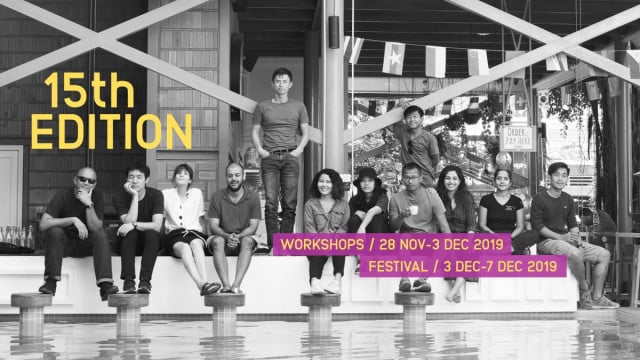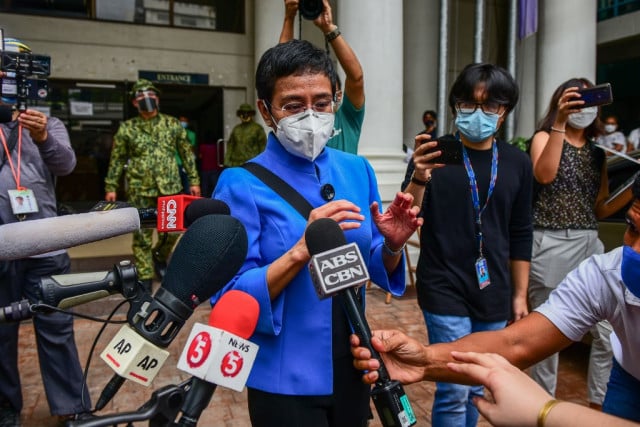Media Rallied in Defense of Women

- By Fanny Debrouwere
- and Jeanne Greff
- March 20, 2024 11:55 AM
PHNOM PENH – Chan Krisna Sawada sits surrounded by cameras and other tools of the journalist’s trade and spells out her team’s daunting mission: To rally the media in defence of women’s rights.
For nearly 30 years, the Women's Media Center has, from its Phnom Penh offices, promoted gender equality and women's rights, covering issues such as health, education, gender-based violence and domestic violence.
It has three main objectives. The first is to empower women and prevent all forms of violence against them. The second is to enable people to access accurate information and the third is to defend democracy and promote public participation.
"Access to higher education for girls is a big problem in Cambodia, especially in more rural populations or ethnic communities,” executive director Sawada says.
“Children have to travel long distances to get to a secondary school. This is when it's preferable to keep girls at home and give priority to educating boys.
“This is how the difference is created, and later we see that men get better jobs, are better paid because according to society's vision, boys are more likely to bring up their families, so more hope is placed in them.”

These inequalities, deeply rooted in Cambodian society, can lead to violence. Within families, and particularly among the poorest rural populations, few women are aware of their rights.
A 2016 study by the UN Population Fund found that more than 30% of Cambodian women experience physical, sexual, psychological or economic violence at the hands of their intimate partner during their lifetime.
"The political world needs to show a real willingness to promote gender equality, to break the pervasive stereotypes in Cambodian society,” Sawada says.
“Yet there is a lack of representation of women in politics and in the decision-making process. The new government has made no attempt to promote women's place in politics, as in the last elections, out of 125 members of parliament, only 16 were women."
To meet these challenges, the Women's Media Center works to arouse public interest and challenge politicians. It hopes to extend its media resources to reach the most remote populations, particularly in the east of the country.
It was founded in 1995 by five women's rights activists, who took action during the 1993 elections. "This collective aimed to ensure that the electoral process included the participation of women, and that the Cambodian Constitution guaranteed gender equality", Sawada said.
Working with the United Nations Transitional Authority in Cambodia, the activists launched campaigns and broadcast radio programs. They collaborated with the NGO MediaTies to train women in video production to document the elections, particularly for the less informed.
Some members subsequently recognized the need to continue promoting women's rights. They recognized the power of the media in promoting and protecting women's rights, as well as in highlighting pressing development issues in the country.

Making women's voices heard
The center comprises two main services: radio and television. The radio station, based in Phnom Penh, can reach 75% of the population via relay stations in the provinces of Kampong Thom, Svay Rieng, Battambang and Kampong Cham. The center also has partner radio networks throughout the country.
"We regularly rank among the top three radio stations in Cambodia," Sawada says. "Radio remains an important source of information for people in the provinces and rural areas who have limited access to phones or the internet."
The center does not have its own TV channel, but it does have a TV unit that collaborates with local and international NGOs to produce programs on social issues. The unit also produces weekly TV series, comedies and documentaries, exploring social issues in the country.
"We have around a million people following our content on our social networking channels, including TikTok, Telegram, YouTube and Facebook. We also broadcast our radio programs, video productions and podcasts on the WMC app and website."
All programs are broadcast in Khmer, but it is possible to find articles in English on their website.

Vision and objectives of an engaged media
The center is careful not to be economically dependent on the government to guarantee its independence. Donations from individuals and international organizations, including UNESCO and Australian Volunteers International, are the main sources of funding.
It also generates income by producing educational videos and radio programs. The team offers interactive radio programs and produces advertisements for companies.
Sawada, who has been in her job for two months, studied political science and eventually devoted herself to human rights, particularly those of women and children in Cambodia.
Over the past 15 years, she has worked for NGOs including ADHOC, Plan International, Save The Children and Oxfam. She has also held the position of political affairs specialist at the British Embassy.
About 50 people work at the center: employees, volunteers and journalism students who have come to do an internship. Most are women.
"It's important that there's a certain balance between men and women on the team. All positions are equally distributed, and we take care to ensure that women are in decision-making positions," Sawada says.
“It is important for the media to be able to cover a wide range of subjects to ensure comprehensive journalistic information. The freedom of expression and safety of women journalists in the exercise of their work remains a matter of concern.
“journalists still face various obstacles and discrimination because of their gender, particularly when it comes to credibility and access to sources of information.
"One of the main difficulties faced by female journalists at the Women's Media Center is ensuring their legitimacy. They are not always taken seriously, especially when it comes to political issues."
To combat this discrimination, the center organizes monthly forums for journalists where they can discuss the challenges they face, support each other and benefit from legal and psychological support.
It also offers training to enhance the skills of women journalists, including digital, content writing and investigative journalism. "By working together and supporting each other, these journalists strive to overcome obstacles and continue to provide quality journalism," she says.
"We strongly believe in the transformative role that media can play in achieving gender equality in societies, by creating content that empowers women and breaks down gender stereotypes. We use the media to make women visible in leadership roles and as experts on a wide range of topics."















